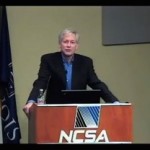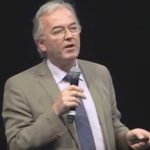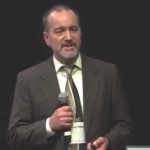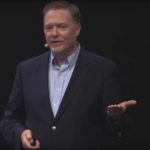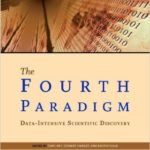Ed Seidel from NCSA presented this talk at The Digital Future conference in Berlin. “The National Center for Supercomputing Applications (NCSA) is a hub of transdisciplinary research and digital scholarship where University of Illinois faculty, staff, and students, and collaborators from around the globe, unite to address research grand challenges for the benefit of science and society. NCSA is also an engine of economic impact for the state and the nation, helping companies address computing and data challenges and providing hands-on training for undergraduate and graduate students and post-docs.”
Leslie Greengard Presents: Modeling Physical Systems in Complex Geometry
In this video from The Digital Future conference in Berlin, Leslie Greengard from the Simons Center for Data Analysis presents: Modeling Physical Systems in Complex Geometry. Greengard is an American mathematician, physician and computer scientist. He is co-inventor of the fast multipole method, recognized as one of the top-ten algorithms of computing.”
Simulation and Data Sciences in the Exascale, Neuromorphic and Quantum Computing Era
Thomas Lippert presented this talk at The Digital Future conference. “The Human Brain Project brings together neuroscientists, physicians, computer scientists, physicists, mathematicians and computer specialists from internationally respected scientific institutions in 23 countries. Their goal is to simulate the complete human brain within the next ten years using a supercomputer of the future. The simulation will be accurate in every detail, and will take in aspects such as genetics, the molecular level and the interaction of whole cell clusters.”
Steve Oberlin Presents: Accelerating Understanding – Machine Learning & Intelligent Applications
Steve Oberlin from Nvidia presented this talk at The Digital Future conference. “Oberlin will discuss machine learning and neural networks, explore a few advanced applications based on deep learning algorithms, discuss the foundation and architecture of representative algorithms, and illustrate the pivotal role GPU acceleration is playing in this exciting and rapidly expanding field.”
Cray’s Steve Scott Presents: Supercomputing Technologies and Trends: Where do we go from here?
Cray’s Steve Scott presented this talk at The Digital Future Conference. “Research and development at Cray is guided by our adaptive supercomputing vision. This vision is focused on delivering innovative, next-generation products that integrate diverse processing technologies into a unified architecture, enabling customers to surpass today’s limitations and meeting the market’s demand for realized performance.”
Tony Hey Presents: The Fourth Paradigm – Data-Intensive Scientific Discovery
Tony Hey from the Science and Technology Facilities Council presented this talk at The Digital Future conference in Berlin. “Increasingly, scientific breakthroughs will be powered by advanced computing capabilities that help researchers manipulate and explore massive datasets. The speed at which any given scientific discipline advances will depend on how well its researchers collaborate with one another, and with technologists, in areas of eScience such as databases, workflow management, visualization, and cloud computing technologies.”

